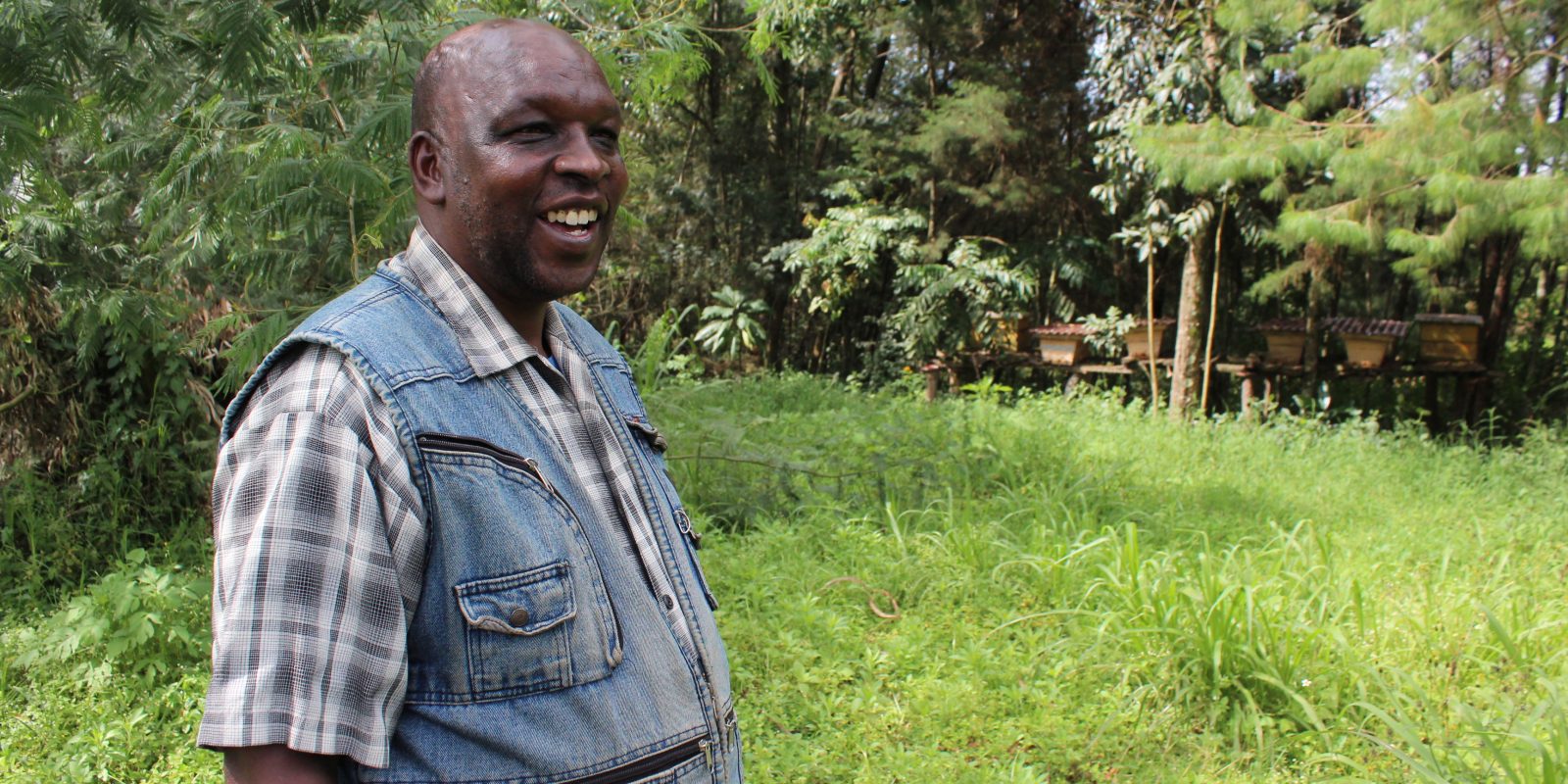Sireet in Nandi Hills, Kenya, have long been interested in how to help farmers diversify their incomes. During a Producers Direct event, honey cultivation was introduced as a profitable business for small plots of land. To start off this venture, Sireet invested in sending a number of their promoter farmers to a week long training session and helped to acquire an initial set of 5 boxes.
One promoter farmer, Christopher, quickly added an additional 5 boxes a few months later and was able to impress his sceptical neighbours when they harvested and sold their first batch of honey. Since then, his neighbours have taken up the practice as beekeeping has spread quickly across the Nandi area. One farmer has been able to get a micro-loan from the ROTA fund and expand his hives from 6 to 31.
Sireet continues to support and encourage the beekeepers by removing some of the common barriers. For example, they have three sets of harvesting equipment that they are able to provide as a community resource. Sireet have also been able to create an immediate market for the farmer’s honey, using their tea connections to sell locally. This, combined with the access to the support of farmer-led training at the Centre of Excellence, has allowed Sireet OEP to add value in honey processing, ensuring a rapid increase in quality and quantity and leading to better and more consistent buyers and markets.
Profiling of bee farmers is an ongoing process. However, currently Sireet are working with 17 farmers and, currently focussing on local markets, 213 litres of honey have been branded packaged and sold to date. In order to expand beyond the Rift Valley, Sireet is planning on enlisting at least 60 farmers which would, assuming an average of 5 hives per farmer, have the potential to generate up to 375 litres every month.

